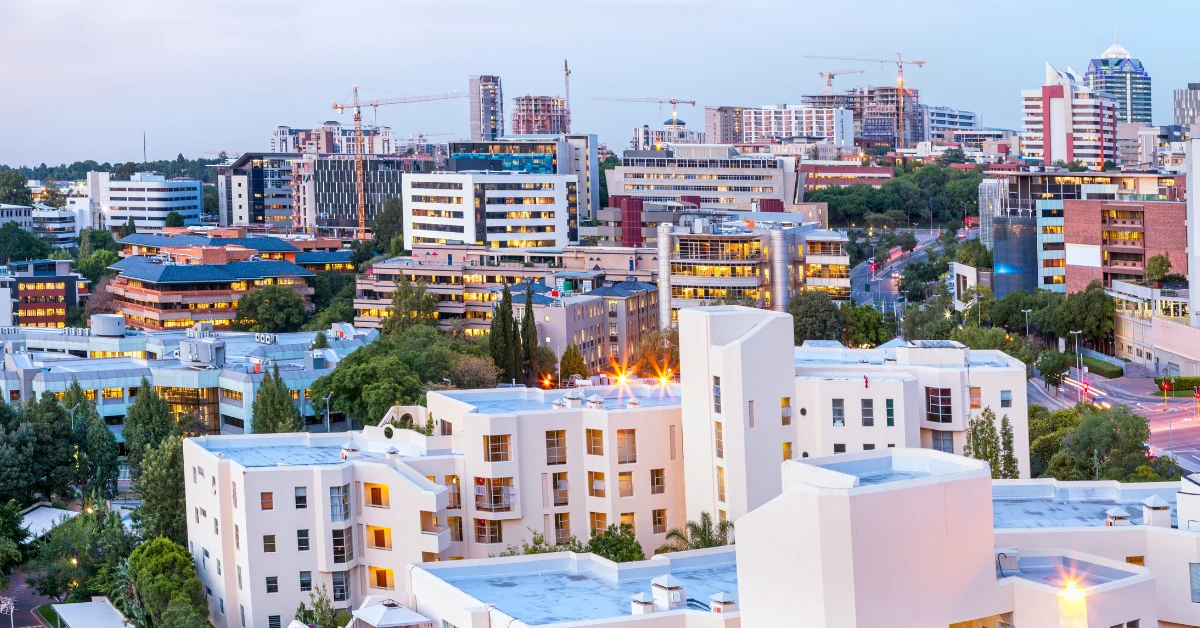The Ultimate Guide To Johannesburg North Attractions
Wiki Article
Some Known Details About Johannesburg North Attractions
Table of ContentsSome Of Johannesburg North AttractionsSee This Report about Johannesburg North AttractionsNot known Factual Statements About Johannesburg North Attractions Johannesburg North Attractions Fundamentals ExplainedFacts About Johannesburg North Attractions RevealedWhat Does Johannesburg North Attractions Do?The Only Guide for Johannesburg North Attractions
However you must keep protection in mind and tourists have to remain sharp in any way times when in strange environments. Speak with the locals when you remain in town to discover the area you are remaining in. Johannesburg North attractions. When on the street (this doesn't relate to shopping center and various other safe and secure settings) best basic recommendations is to try your best to look like a regional and to prevent displaying any type of wide range
The Buzz on Johannesburg North Attractions
Teacher Revil Mason O. J. (Thomson, 1946) discovered the Witwatersrand's pre-colonial history. His archaeological job blew up the 'em pty land' myth, according to which the region was lacking human habitation before the arrival of European settlers. In his publications Prehistory of the Transvaal: A Document of Human Activity (1962) and Origins of Black People of Johannesburg and the Southern Western Central Transvaal AD 3501880 (1986 ), Teacher Mason demonstrated the extent of social and economic growth in the location before Europeans set foot here.

Indicators on Johannesburg North Attractions You Need To Know
In 1878, David Wardrop discovered gold in quartz blood vessels at Zwartkop, north of Krugersdorp. In 1881, Stephanus Minnaar came throughout gold on the farm Kromdraai, near the Cradle of Humankind.In March 1886, a protrusion (soon to be called the Main Coral reef) was discovered, quite fortuitously, on Gerhardus Oosthuizen's farm Langlaagte. Some say that the Lancastrian coal miner George Pedestrian found this reef. Another itinerant English prospector, George Harrison (that had previously operated in Australian mines) acquired a prospecting licence in regard of Langlaagte in May 1886.
He made a decision to proceed in a quest for greener pastures, and disposed of his Langlaagte case for the handsome amount of 10. Alas: below lay the wealthiest goldfield ever discovered. The discovery of this rich auriferous coral reef provoked a gold rush that signalled completion of agrarian serenity in the southerly Transvaal.
It would, within 6 years, end up being the largest town in southern Africa. Within a years, it would make the Z. A. R. until then an anarchical and bankrupt little state the richest nation in Africa. By the turn of the century, the Z. A. R. was to exceed Russia, Australia and the United States of America to become the globe's leading gold producer, generating more than a quarter of the world's gold.
Johannesburg North Attractions - Truths
It was referred to as Ferreira's Camp, named after Colonel Ignatius Ferreira. He was a Boer traveler upon whom the British authorities had his response actually presented the standing of Buddy of one of the most Identified Order of St Michael and St George (entitling him to the post-nominal letters C. M. G.) in appreciation for his function in the war that had deposed the Pedi king Sekhukhune in 1879.2 various other camps were established: Meyer's Camp on the farm Doornfontein, and Paarl Camp. The latter Learn More Here was nicknamed Afrikander Camp; lots of people from the Cape Swarm worked out there.

The Only Guide to Johannesburg North Attractions
This name gained currency by word of mouth, such that the State Secretary affirmed the name to the Mining Commissioner on 9 October 1886. Stands in the town were auctioned on 8 December 1886. While some stands were sold for 10, others were knocked down for as little as sixpence.2 years later, these erven were to alter hands for as much as 750 each. The tented camps diminished as a dorp of corrugated iron structures developed and expanded north of the mines located along the Key Reef Roadway. Areas such as Jeppe's Town (where working-class immigrants erected their homes) and Doornfontein (where the wealthy new 'Randlords' started to create their luxurious homes) were soon included in the ever-expanding map of the community.
Not known Facts About Johannesburg North Attractions
Besides the road names, there were no indicators of Johannesburg being situated in a Dutch-speaking nation. Lots of years later on, C. W. Kearns O. J. (among the very first boys enlisted at St John's University in 1898) would remember: 'A weird truth about Johannesburg was that, although it remained in the [Boer Republic], almost every person talked English and also the Government slaves addressed one in English, unless they were first resolved in the Taal (or Reduced Dutch)'.Because of this, Britain had an interest in making sure optimal conditions for gold production on the Witwatersrand, which the gold was exported to London rather than Berlin a necessary provided all the much more clamant by the Z. A. R - Johannesburg North visit this page attractions.'s boosting toenadering with Germany. Mine proprietors were on an accident training course with Head of state Kruger, whose plan of monopolistic concessions (usually approved to his cronies) stopped mining companies from acquiring products of materials (especially dynamite) and work on their own, less costly terms
7 Easy Facts About Johannesburg North Attractions Described
In 1890, the Volksraad had limited the franchise to white men that had actually resided in the Z. A. R. for fourteen years or longer, hence invalidating the majority of the immigrants (that occurred to be the significant contributors to the fiscus). Frustration for the ballot was a plain pretext for advertising a various program; many uitlanders regarded themselves as momentary visitors and had no intent of remaining in the Z.Report this wiki page